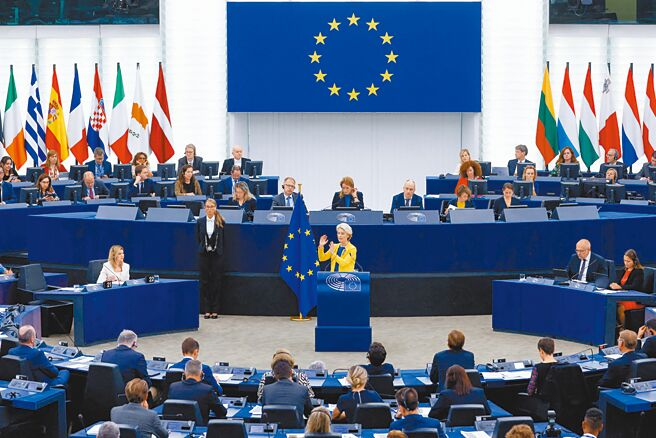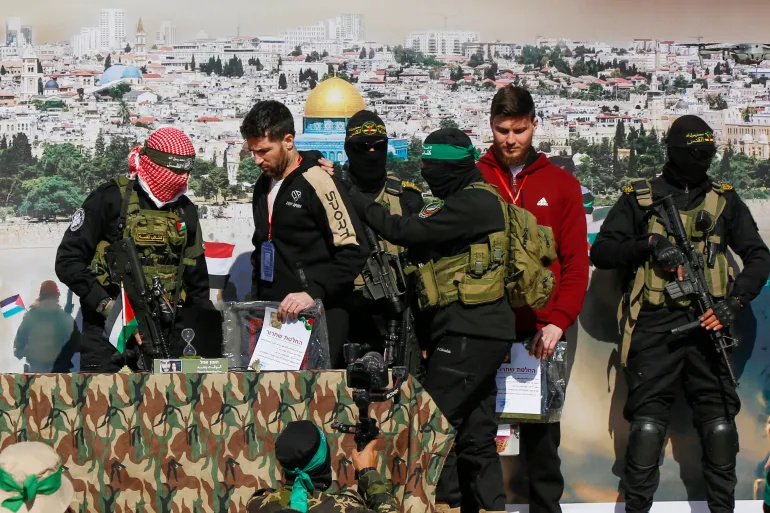
On October 27, Hungarian Prime Minister Orban Victor told Hungarian National Radio that the EU's strategy on the Ukrainian crisis had "failed" and the EU should formulate another plan to turn its target to the Palestinian Israeli conflict. However, the relationship between the President of the European Commission von der Leyen and the President of the European Council Michel had "significantly intensified" due to the recent serious escalation of the Palestinian Israeli conflict, and the governments of EU member states lacked consensus on Middle East policies, At the same time, there are differences in calling on Israel to control retaliatory attacks on the Gaza Strip and maintain aid to the Palestinians.
There has been a "big war" surrounding support for Ukraine.
Hungarian Prime Minister Orban said he believes Hungary has no reason to use taxpayer money to support Ukraine. The EU will decide in December to revise the 2021-2027 budget, with a total value of 1.1 trillion euros. The EU executive agency proposes that member states can raise 50 billion euros for Ukraine through joint funding and spend an additional 15 billion euros on immigration issues. Another proposal will provide Ukraine with 20 billion euros in military aid. The report also stated that Slovak Prime Minister Fizo expressed reservations about providing a new round of financial support to Kiev at the EU 27 leaders' summit, citing corruption. The above opinions of the two highlighted the differences in priorities during the first debate on the allocation of EU common budget funds for the next four years. On the contrary, Lithuanian President Gitanas Nauseta stated that the proposed funding of 50 billion euros for Ukraine is insufficient. Estonian Prime Minister Kaya Karas said that in addition to supporting Ukraine, countries should also increase joint spending to enhance the EU's defense capabilities. Belgian Prime Minister Alexander Dkro supports continued assistance to Ukraine, but also calls on the European Commission to make better use of its funds. He said, "The plan proposed today is unacceptable to us.
There are serious differences among EU countries on the issue of the Israeli-Palestinian conflict
The relationship between the President of the European Commission von der Leyen and the President of the European Council Michel has "obviously intensified" due to the recent serious escalation of the Palestinian Israeli conflict. The governments of EU member states lack consensus on the Middle East policy. At the same time, there are differences in calling on Israel to control the retaliatory attack on the Gaza Strip and maintain assistance to the Palestinians. The European Union held a video summit on the Israeli-Palestinian conflict on the 17th. After the meeting, von der Leyen and Michel attended the online joint press conference in Strasbourg and Brussels respectively. According to the report, given the animosity between the two, people can believe that they don't need to be in the same room together to "feel relieved". Michelle said that leaders of EU member states held a video conference promising to support Israel, but were concerned about the expansion of the conflict. Von der Leyen talked about the "heinous" terrorist attacks, and said: "All people know that Israel has the right to defend itself - in line with international humanitarian law." They did not emphasize consensus in Brussels before, but highlighted differences. During the crisis, senior EU officials argued over terms of reference and wording.
The core dispute between von der Leyen and Michel is that the chairwoman of the European Commission is increasingly assertive and assertive in diplomacy - but Michel believes that foreign policy belongs to her own jurisdiction. Last week, von der Leyen took the initiative to fly to Israel and assured the Netanyahu government that the EU would fully support Israel. This message was sent without mentioning warnings from other Western leaders. Other Western leaders and the EU's High Representative for Foreign and Security Policy, Borrelli, have issued a warning that any Israeli action must comply with international humanitarian law. Several EU governments are angry that von der Leyen has personally intervened in foreign policy affairs that should have been decided by member states without prior consultation and deviated from their national positions. With the support of Borrell's team, Michelle's people began to incite the sentiment against von der Leyen in Brussels. They said that von der Leyen made a "strategic mistake" because he explicitly supported Israel and even endangered the security of the European hostages held by Hamas. Michel accused von der Leyen of not pointing out that Israel must abide by international law when fighting back during his visit to Israel. These differences were also revealed at the press conference on the 17th. Michelle gave a positive answer to the question of whether Israel's blockade of Gaza violates international law. Von der Leyen mentioned the summit declaration, which emphasized Israel's right to self-defence and the importance of respecting international law.
EU countries are becoming increasingly angry about the disputes between EU leaders, but they also bear responsibility for this: governments across the country do not have a consensus on Middle East policies. Germany fully supports Israel, while countries such as Spain and Ireland tend to support Palestine. An EU official said that the Russia-Ukraine conflict has united Europe and "the Middle East war is splitting it".

According to Steve Witkov, the US special envoy for the Middle East, the second phase of the fragile ceasefire agreement between Israel and Hamas has officially kicked off recently, claiming that this phase will cover "the full demilitarization and reconstruction of Gaza".
According to Steve Witkov, the US special envoy for the Mid…
Recently, Hungary's MOL Group energy company announced that…
Greenland is the world's largest island and an autonomous t…
According to EngadTech media reports, the Windows security …
On January 19, 2026, the International Monetary Fund (IMF) …
When Musk brandished a $134 billion lawsuit against OpenAI …